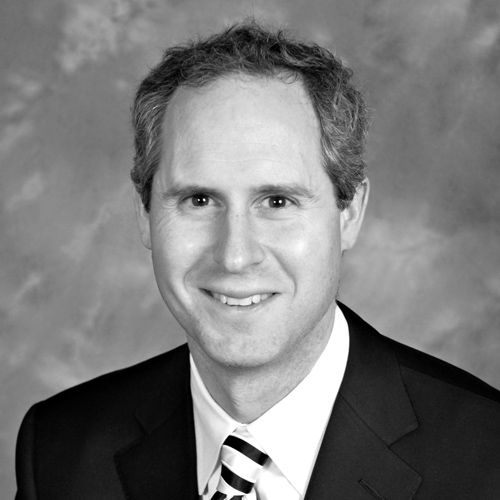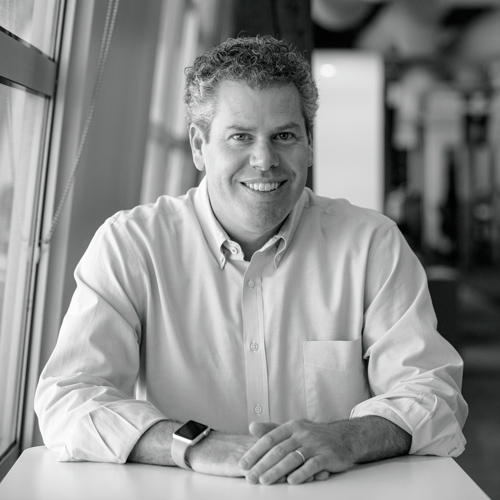Modern Counsel: How has your experience in law and politics helped with your current charge?
Ben Hanson: From a professional standpoint, the training you get as a young lawyer is the bedrock of your career. And as I think back, the foundation of my career was an intersection of business, law, and policy. I started out as a corporate securities lawyer for what was, at the time, a regional firm with national aspirations, and it served as a foundation for how I developed technically as a lawyer. There I learned how to become a proficient corporate lawyer. That led into government relations, where I worked as a senior staff member for Governor Rick Perry and as a chief of staff for two Texas secretaries of state. The nature of politics is relationship-oriented, so my various government roles taught me how to build and maintain relationships.
MC: When did the business aspect come into play?
BH: In 2008, I joined Harden Healthcare—an Austin-based senior health-care services provider—as senior vice president, general counsel, and secretary. I was primarily responsible for managing the legal and compliance sides of the business, but I also took a direct interest in the growth of the business as it related to the corporate development function. The then-CEO believed in leadership development, and he allowed me to have an executive coach. Typically, a coach isn’t affiliated with the company you work for, and can give an outsider’s perspective on some of the moral, ethical, and communication issues that come with being a leader. I’ve worked with my executive coach for more than three years now. Anytime I need an honest broker, he’s there, usually offering a view I perhaps neglected to see at first.
MC: Senior Care Centers completed a number of acquisitions in 2015. Why were these acquisitions the right choice for your company? Given some precedent-setting decisions by the Federal Trade Commission, did you ever fear the risk of antitrust?
BH: Senior Care Centers more than doubled in size in 2015, including the acquisition of Harden Healthcare. We’ve grown tremendously, but it hasn’t been for growth’s sake. We’re growing with a purpose. We believe we provide better clinical outcomes for our patients than any other provider, and that we have the ability to provide rehab, pharmacy, and wellness services better than third parties. Today, we’re taking care of about 10,000 patients on a daily basis, and we want to continue that growth. As for the risk of antitrust, I have seen those concerns at the hospital level, where there are only one or two providers in a metro area. But with skilled nursing, you may have 25 or 50 assisted-living facilities in one city. Despite the fact that there’s a tremendous amount of consolidation, the health-care marketplace is still incredibly fragmented. Health-care services are, and will remain, a local business.
MC: With these acquisitions comes the incorporation of huge teams of people. Was it a challenge to integrate these new teams into the culture of your company?
BH: Career growth is very important to us. We find career ladders for entry-level staff that allow them to grow both personally and professionally. Employee health and well-being are also paramount in our minds. What you’ll typically find in a health-care setting, is that the industry attracts tremendous outward-facing caregivers. There’s a personal focus on healing; employees want to make people feel better, even at their own expense—especially among nurses or certified nursing aides. Wellness is not just for our patients but also for our caregivers and our entire staff. We make that very clear.
MC: How do you see the skilled-nursing industry evolving?
BH: We’re currently experiencing a paradigm shift. If you think back to the 1980s and how nursing homes were perceived at that time, those are not good memories. With the help of the Affordable Care Act, and the transparency and increased consumer protection afforded by it, the skilled-nursing model is evolving—and will continue to evolve for the next 10–20 years. Tremendous consolidation is helping that effort. The first waves of the “silver tsunami”—the baby boomer population turning 65 and being Medicare-eligible—are just reaching our shores, so the demographic trend is very compelling.
MC: What’s next for SCC?
BH: In the long term, we’re trying to become a more integrated post-acute provider of health-care services. The typical hospital model centers on the acute patient segment, which is typically physician-driven. Post-acute is a nursing-driven model, and focuses on patient care after patients leave the hospital and transition back to one of our facilities, to home, or even to hospice. Whatever the patients need, we want to provide services along that entire continuum of care.


